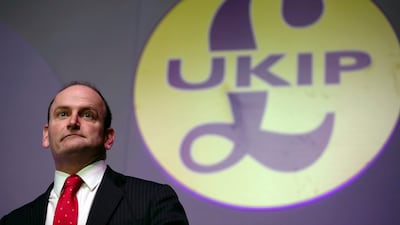The UK Independence Party (UKIP) appears to be crumbling. The party, best known for advocating Britain leaving the European Union, is the most right-wing of the country’s major parties. Until recently, it was also led by Nigel Farage, a populist politician who has what most faceless politicians crave: name recognition.
What the party did not have was electoral credibility – it only had one MP, Douglas Carswell, a former Conservative. Now Mr Carswell has left the party to be an Independent, meaning UKIP has no members at all in Parliament.
Yet UKIP’s influence on British politics has been outsized. The party encouraged xenophobia and Islamophobia among its supporters, while the leadership remained respectable. It also argued the EU was the cause of all the country’s woes – and as the Brexit vote last summer proved, many in the country believed it.
That shows the power of these small parties, which may not make inroads democratically but succeed in changing the conversation. The same applies to Geert Wilders’ Party for Freedom in the Netherlands (which did not win this month’s general election) and Marine Le Pen’s Front National (which is unlikely to win the French presidency next month).
In both cases, the national conversation was shifted by these right-wing parties to the point where the main political parties had to play catch-up, adopting the language and policies of the far-right in order not to lose votes.
The most extreme version of this is probably the Tea Party in the United States, which so skewed the political discourse among the Republican base that a previously improbable candidate such as Donald Trump could win the party’s nomination.
In democracies, these political parties can skew the democratic process, because what they are proposing is often unworkable, impractical or flat-out untrue. But because these parties never get into government, they never have the chance to fail.

